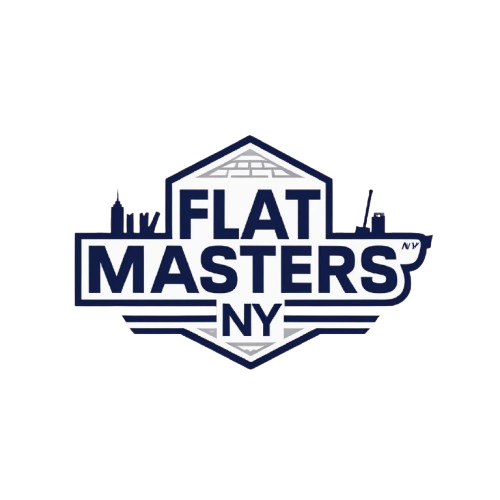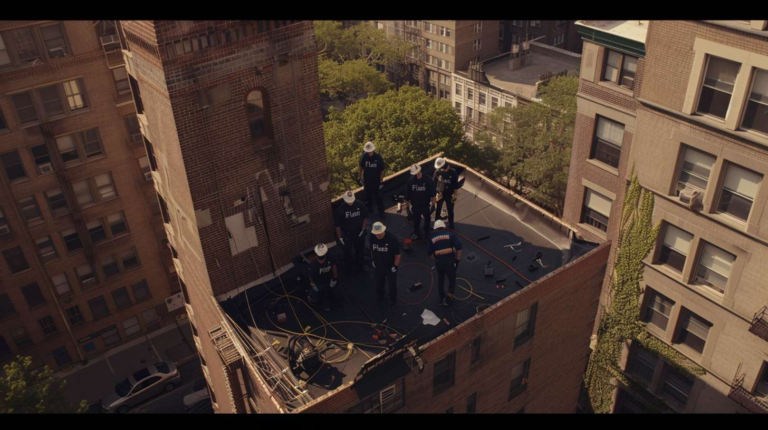Professional Single Storey Flat Roof Extension Services Near You
Look, I've been installing single storey flat roof extensions across Queens for over 20 years, and I can tell you right now - these projects typically run between $15,000 to $45,000 depending on size and complexity. Most homeowners in Astoria and Flushing are looking at around $25,000 for a standard 200 square foot extension with proper drainage and insulation.
Here's what really drives those costs: waterproofing quality, structural requirements, and local permits. The Department of Buildings in Queens doesn't mess around with flat roof extensions, especially when you're adding square footage to your home.
Why Queens Homeowners Choose Flat Roof Extensions
Space is premium in Queens. I can't tell you how many times I've worked with families in Elmhurst or Jackson Heights who needed more room but couldn't build up due to zoning restrictions. A flat roof single storey extension often becomes the perfect solution - you're going out, not up.
The beauty of a single storey rear extension flat roof is versatility. Last month on 82nd Street in Jackson Heights, we extended a kitchen that transformed the entire first floor layout. The flat roof design allowed for easy integration with the existing structure, and honestly, it cost about 30% less than a pitched roof alternative would have.
But here's the thing - not every contractor understands the unique challenges of flat roofing in our climate. The freeze-thaw cycles, the summer heat reflecting off all that concrete and asphalt in Queens, plus the occasional nor'easter that dumps three feet of snow.
Technical Considerations for Queens Properties
Every single storey flat roof extension we design starts with proper drainage. I've seen too many failed extensions where contractors didn't account for Queens' heavy rainfall patterns. We're talking about designing slopes of at least 1/4 inch per foot toward multiple drains - not just one drain in the middle hoping gravity does all the work.
The structural engineering aspect can't be overlooked either. Most Queens homes built before 1960 have foundation considerations that affect how we tie into existing structures. My structural engineer Pete, who's been working these neighborhoods since the 80s, always says the connection details make or break these projects.
Insulation requirements have gotten stricter too. The new energy codes mean we're installing R-30 minimum for roof assemblies, which affects the overall thickness of your roof system. This impacts everything from door thresholds to how the extension integrates with your existing roofline.
Membrane Options That Actually Work in Queens
I've installed every type of flat roof membrane you can imagine, and in Queens' climate, three options consistently outperform the rest.
EPDM rubber remains my go-to for most residential extensions. It's cost-effective, handles temperature fluctuations well, and when properly installed with full adhesion, it'll give you 20-25 years of service. We source our EPDM from Beacon Building Products on Northern Boulevard - they stock the heavy-duty 60-mil thickness that holds up to foot traffic from HVAC maintenance.
TPO is gaining popularity, especially for larger extensions. The white surface reflects heat better than EPDM, which helps with energy costs during those brutal Queens summers. Installation costs run about 15% higher than EPDM, but the energy savings often justify the difference over time.
Modified bitumen still has its place, particularly when tying into older flat roof sections. The torch-applied versions require experienced installers - we're talking about open flame work that requires proper permits and insurance coverage. But when done right, it creates an incredibly durable, seamless connection.
Permit Process and Code Compliance
Here's where things get interesting with Queens DOB. Any extension over 120 square feet requires a full building permit, and they're strict about structural calculations for flat roof systems. The permit process typically takes 6-8 weeks if everything's filed correctly the first time.
The inspection sequence matters too. We schedule the foundation inspection first, then framing, then roofing rough-in before membrane installation. DOB wants to see your drainage system and insulation before you close everything up. Missing an inspection means delays and potential rework.
Zoning compliance adds another layer. Rear yard setback requirements vary by neighborhood - what flies in Fresh Meadows might not work in Forest Hills. We always verify zoning before design starts because nobody wants to tear down a partially completed extension.
Realistic Timeline Expectations
Most single storey flat roof extensions take 8-12 weeks from permit approval to final inspection. Weather obviously affects this - you can't install membrane systems in rain or when temperatures drop below 40 degrees.
Foundation work usually takes two weeks, framing another week, and roofing installation typically needs 3-5 days depending on size and complexity. But here's what most contractors won't tell you - the finishing work often takes longer than the structure. Electrical, plumbing, flooring, and final details can stretch the project timeline significantly.
We always schedule roofing work for spring through early fall when weather cooperates. Starting a flat roof project in November in Queens? That's asking for trouble.
Cost Breakdown for Queens Projects
Let me break down typical costs for a 200 square foot extension:
- Foundation and excavation: $3,500-5,000
- Framing and structural: $4,000-6,500
- Roofing system (including insulation): $3,000-4,500
- Electrical and plumbing rough-in: $2,500-4,000
- Permits and inspections: $1,200-2,000
- Finishing work: $4,000-8,000
These numbers reflect Queens pricing as of 2025. Material costs have stabilized somewhat after the crazy inflation we saw in 2021-2022, but labor rates continue climbing due to skilled worker shortages.
Common Problems We Fix
I spend half my time fixing other contractors' mistakes on flat roof extensions. Poor drainage tops the list - water pooling anywhere on a flat roof means eventual leaks and structural damage.
Inadequate insulation creates condensation problems that rot framing and create mold issues. The temperature differential between heated interior space and cold roof deck needs proper vapor barrier installation. Cut corners here, and you'll have problems within two years.
Flashing details around penetrations and perimeter edges fail more often than the main membrane. Every vent, drain, and wall connection needs proper detailing with compatible materials. Mixing different metal types creates galvanic corrosion that'll eat through flashing in Queens' coastal environment.
Maintenance Requirements
Flat roofs need more attention than sloped roofs - that's just reality. We recommend bi-annual inspections, ideally spring and fall. Clear debris from drains, check for membrane damage, and inspect all flashings.
Small repairs catch early prevent major problems. A $200 patch job today saves a $5,000 re-roofing project later. Most homeowners can handle basic drain cleaning, but membrane repairs should be left to professionals.
Snow removal sometimes becomes necessary during heavy winters. Flat roofs handle normal snow loads fine, but three feet of wet snow exceeds most residential design loads. We keep a list of qualified snow removal contractors for our customers.
Working with Flat Masters NY
We've been handling single storey flat roof extensions throughout Queens since 2003. Licensed, bonded, and carrying full liability coverage - license 1285429 if you want to verify.
Our approach starts with a thorough site assessment. Soil conditions, existing structure evaluation, and zoning compliance review happen before any design work begins. Too many projects fail because contractors skip this preliminary investigation.
Every project gets a dedicated project manager who handles permits, inspections, and coordinates all trades. You get their direct cell number, not some answering service. Communication matters when you're living through a construction project.
We stand behind our work with comprehensive warranties - 10 years on membrane systems, 5 years on structural elements, and 2 years on workmanship. More importantly, we're still here to honor those warranties. How many contractors can you reach five years after project completion?
Call us at (917) 994-7618 for a consultation. We'll walk your property, discuss options, and provide a detailed estimate within one week. No high-pressure sales tactics - just honest assessment of what your project requires and what it'll cost.
Your single storey flat roof extension deserves proper planning and expert installation. Queens homeowners have enough headaches without worrying about leaky roofs.


